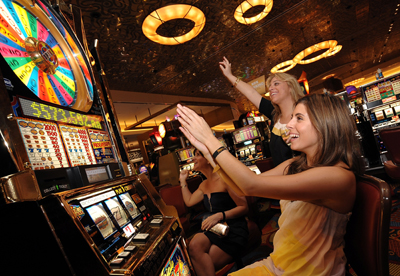
Casino activities have fascinated enthusiasts for ages, drawing them into a realm of thrill, chance, and fortune. From the sparkling lights of gambling machines to the strategic nature of poker tables, these experiences offer a unique combination of fun and hazard. However, below the facade of this sparkle and finesse lies a intricate relationship of math that shapes every result and choice made within the gambling establishment.
Understanding this link between casino games and mathematics not only improves the playing experience but also can help gamblers make informed choices. Whether you are a casual gambler or a avid enthusiast, recognizing the numerical strategies at play can provide insightful knowledge into chances, ratios, and approaches, eventually affecting how one deals with these games of luck.
Statistical Likelihood in Betting
In the realm of gambling games, mathematical probability plays a vital role in determining results and guiding player decisions. Every game has a unique set of regulations and a particular probability framework that affects its mechanics. For example, in activities like roulette, players must grasp the chances of choosing a specific digit or shade. The likelihood of specific occurrences occurring can be computed, and this knowledge can substantially influence betting strategies.
Players also need to be informed of the house advantage, which is the mathematical benefit that casinos hold over gamblers in the long run. This edge differs across different games. In 21, expert players can use tactics to reduce the casino advantage to as little as one percent, while in activities like slot machines, the casino edge can be significantly greater. Comprehending the house edge allows players to make educated choices about which games to participate in and the amount to wager.
Moreover, likelihood is fundamental in the principle of danger versus reward in gambling. Each bet carries a specific danger factor, and gamblers must assess the possible payout against that risk. Activities like poker require gamblers to not only compute the chances of their own hand winning but also to evaluate the probabilities of their opponents’ showings. By applying mathematical concepts to their strategy, players can enhance their chances of winning and participate more effectively in the exciting realm of gambling activities.
Expected Value in Casino Games
When discussing casino games, one of the fundamental ideas rooted in math is the anticipated worth. This statistical metric helps players understand the potential outcomes of their bets over a period. In basic terms, expected worth (EV) determines the average amount a gambler can expect to gain or suffer per wager if they were to play the activity repeatedly. Each activity has its own EV, affected by the probabilities and the casino advantage, which signifies the advantage that the casino holds.
For example, think of a game like roulette. The anticipated value can be derived based on the particular wager made. If a gambler bets on a single number, the return is 35 to 1, but the actual odds of success that bet are 1 in 37 (in Euro roulette). This results in a detrimental expected value, indicating that, on the whole, gamblers will lose money over time when playing this kind of wager. Understanding this concept allows players to make more educated decisions about which games and wagers may be more favorable.
Additionally, the exploration of anticipated value can lead to better bankroll management. Gamblers who comprehend the mathematics behind their games are often able to set realistic expectations. By recognizing their possible losses and gains, they can modify their gambling strategies appropriately, which may improve their total gaming experience. As a result, anticipated worth serves as a critical tool for both novice and seasoned players to navigate the frequently volatile character of casino activities. mu88
Tactics and Probabilities: The Mathematics Behind Winning
In casino games, comprehending the odds is vital for gamblers seeking to boost their chances of success. Each activity has its own specific set of odds that dictate successful outcomes, and these numbers are often presented in the game’s rules or payout tables. For case, in activities like 21, participants can boost their odds through tactics such as tracking cards, which relies on arithmetic concepts to gain an upper hand over the casino. By familiarizing themselves with the probabilities, gamblers can make more knowledgeable determinations on when to wager and when to quit.
Furthermore, the principle of expected value has a significant part in gaming tactics. Expected value calculates the typical outcome of a stake over the long run, allowing participants to evaluate whether a particular bet is justifiable taking. For instance, video slots have a set payback percentage, which can indicate the typical profit a gambler can expect on their wagers. By opting for activities with greater payout percentages, gamblers can lessen the casino edge, maximizing their possible rewards in the future.
Lastly, successful players often employ a blend of luck and math strategy to improve their gaming experience. While luck can’t be controlled, managing a wagering approach based on math insights can lead to more advantageous situations. By employing techniques such as budgeting and game selection, gamblers can apply math to handle the unpredictable nature of gaming, making the most of their time and investments at the tables.
